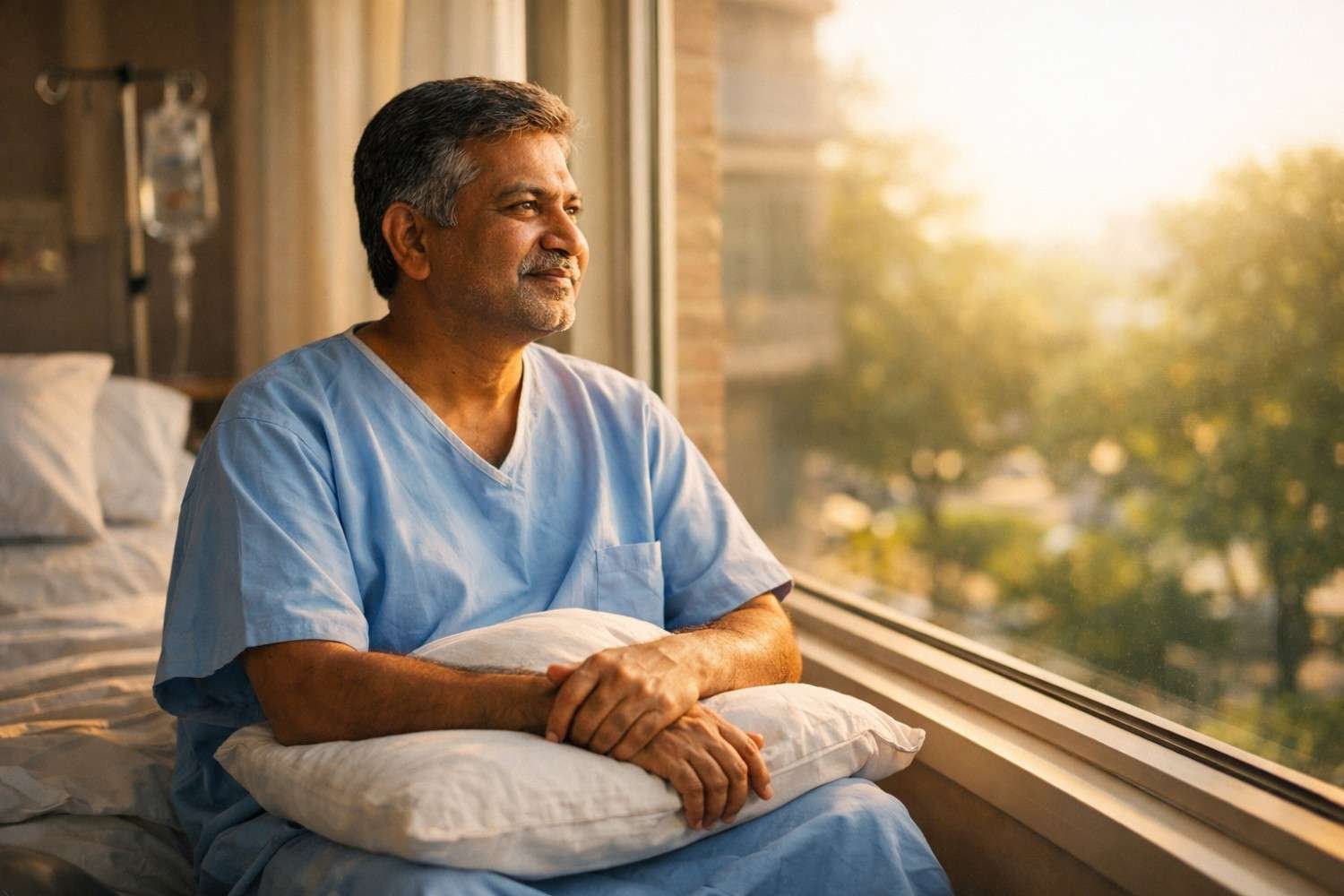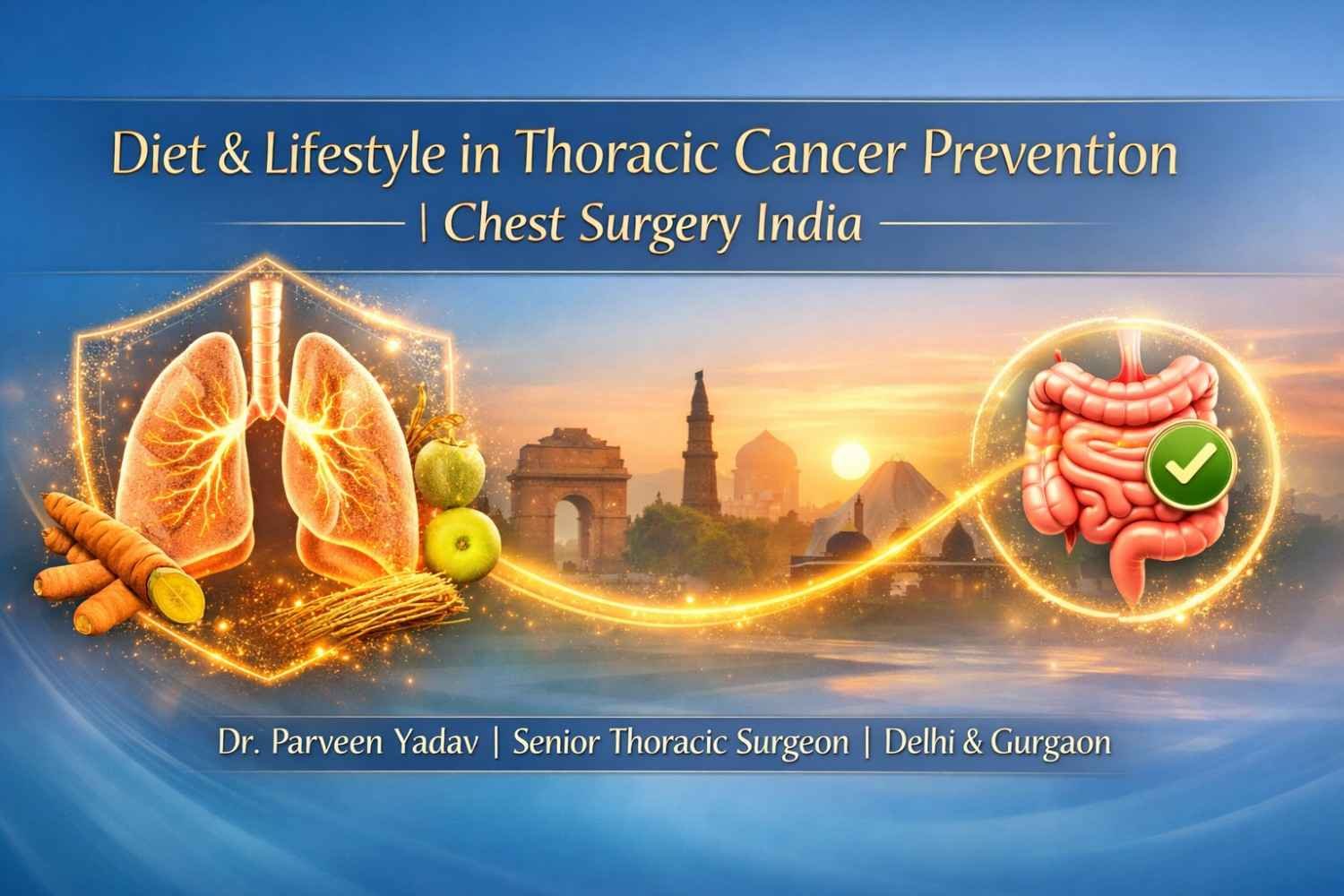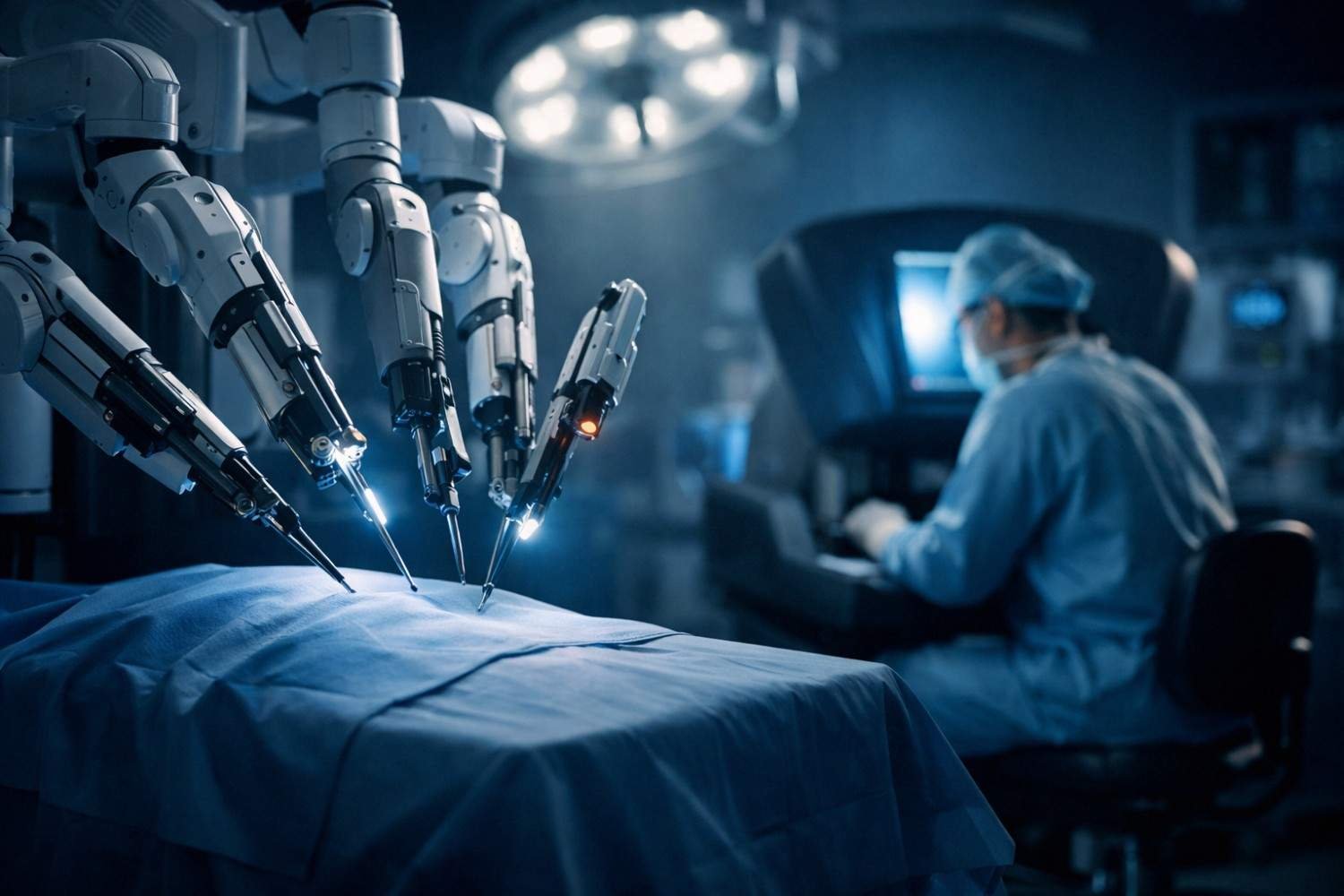

Lung cancer remains one of the most severe types of cancer, primarily because its symptoms can often be overlooked until the disease has progressed to an advanced stage. Early detection improves survival rates by raising awareness of early signs. In this blog, we'll explore twelve signs of lung cancer that you should not ignore, particularly if you're in the Gurgaon, Delhi area, where options for treatment and specialists are available.
A persistent cough that doesn't go away after two or three weeks can be one of the first signs of lung cancer. This cough might be dry, or it could produce mucus, but it is persistent and irritating. If you have a chronic cough that's getting worse over time, it's advisable to consult a lung cancer specialist in Gurgaon, Delhi.
If your chronic cough noticeably changes, or if you start coughing up blood or rust-coloured sputum, it's essential to seek medical advice. These could be signs of lung cancer that need immediate attention from a lung cancer hospital in Gurgaon, Delhi.
Latest Blog: Important Lung Cancer Myths Everyone Should Know
Shortness of breath or wheezing can also be indicative of lung cancer. If you find yourself struggling to breathe after mild activities or even while resting, it might be due to lung cancer obstructing or narrowing your airways.
Chest pain that is dull, aching, persistent, and worsens with deep breathing, coughing, or laughing must be checked out. This pain can result from the tumour pressing against nerves and other structures in the chest, a common condition treated in facilities offering lung cancer treatment in Gurgaon, Delhi.
Unintentional weight loss and loss of appetite may indicate the presence of different types of cancers, including lung cancer. Suppose you observe a significant decrease in your body weight without changing your diet or exercise regimen. In that case, seeking medical attention from a healthcare provider is crucial.
Another symptom that should not be overlooked is feeling unusually tired without an apparent reason. While fatigue can be related to many non-cancerous conditions, when combined with other symptoms here, it warrants a check-up for possible lung cancer.
If you experience repeated bouts of bronchitis or pneumonia, this could be a sign that lung cancer is affecting your lung's ability to fight off infections. A lung cancer surgeon in Gurgaon, Delhi, should evaluate frequent infections.
A change in your voice or hoarseness that doesn't go away after a few weeks can indicate lung cancer affecting the nerves that control the larynx or voice box. This is a symptom to discuss with your doctor, especially if you smoke or have a history of smoking.
If a tumour grows in the lung and puts pressure on the superior vena cava, a central vein that carries blood from the upper body to the heart, it can cause swelling in the face or neck. This is a severe symptom that needs prompt medical attention.
Trouble swallowing (dysphagia) can be caused by a lung tumour pressing against the oesophagus. If you find swallowing foods or liquids difficult or painful, it is essential to seek medical advice.
Persistent or recurrent chest infections can be indicative of lung cancer, especially in older adults or those with a history of smoking.
Pain in the bones, especially in the back or the hips, can be a sign that lung cancer has spread. This type of pain should be evaluated promptly, particularly if it worsens at night.
If you or someone you know is experiencing any of these symptoms, it is essential to consult a healthcare provider for an overall evaluation. In Gurgaon, Delhi, you can access specialspecialisedt Chest Surgery India, led by Dr. Parveen Yadav, a renowned doctor for lung cancer. Early detection and treatment by specialists like Dr. Yadav can significantly improve lung cancer patients' outcomes. Do not ignore these symptoms; early intervention is critical to effective treatment.
1. What are the first warning signs of lung cancer?
Ans: Persistent cough, changes in cough, and chest pain are some of the first warning signs of lung cancer.
2. How is lung cancer detected and diagnosed?
Ans: Lung cancer is typically detected through imaging tests like chest X-rays and CT scans, followed by a biopsy to confirm the diagnosis.
3. What are the main factors contributing to lung cancer development?
Ans: Smoking, exposure to radon gas, asbestos, and environmental toxins are the leading causes of lung cancer.
4. Can non-smokers get lung cancer, and how common is it?
Ans: Yes, non-smokers can get lung cancer, and it accounts for about 10-15% of all lung cancer cases.
5. What are the different stages of lung cancer, and what do they mean?
Ans: Lung cancer stages range from I to IV, with stage I being localizlocalisedage IV indicating advanced disease with metastasis.
6. How do small cell lung cancer and non-small cell lung cancer differ?
Ans: Small cell lung cancer (SCLC) is less common, grows more rapidly, and is often more aggressive than non-small cell lung cancer (NSCLC), which is slower growing and more prevalent.
Dr. Parveen Yadav is a highly recommended surgeon or specialist for lung cancer treatment in Gurgaon, Delhi. He specialises in minimally invasive and robotic thoracic onco surgery. He has been recognised for years as the best chest surgeon in Gurgaon, Delhi, for his expertise in treating chest-related (Chest Surgery) ailments, such as Esophageal (Food Pipe Cancer), Lung, Tracheal (Throat), Chest wall tumours, Mediastinal Tumours, Empyema, and Bronchopleural Fistula cancer. With a focus on precision and innovation, he is dedicated to offering exceptional care to his patients, utilising techniques to ensure optimal outcomes.

18+ Yrs Exp | 5,700+ Thoracic & Robotic Cancer Surgeries
Dr. Parveen Yadav is a Director and Senior Consultant in Thoracic and Surgical Oncology, specializing in minimally invasive and robotic lung and esophageal surgeries, with advanced training from AIIMS and Tata Memorial Hospital.
View Full Profile Pain After Thoracic Surgery: Tips for Smooth Recovery
Pain After Thoracic Surgery: Tips for Smooth Recovery
 Diet & Lifestyle for Thoracic Cancer Prevention | Dr. Parveen Yadav
Diet & Lifestyle for Thoracic Cancer Prevention | Dr. Parveen Yadav
 Robotic Thoracic Surgery: How Da Vinci Technology is Revolutionizing Chest Procedures
Robotic Thoracic Surgery: How Da Vinci Technology is Revolutionizing Chest Procedures
Struggling with pain after chest surgery? Dr. Parveen Yadav shares expert recovery tips, causes of shoulder pain, PTPS signs, and what your discharge sheet won't tell you.
Discover how diet, breathing exercises & daily habits help prevent and recover from thoracic cancer. Expert insights from Dr. Parveen Yadav, Chest Surgery India
Discover how Da Vinci robotic surgery is transforming chest procedures in Gurgaon. Less pain, faster recovery & expert care by a certified thoracic surgeon
Copyright 2026 © Dr .Parveen Yadav all rights reserved.
Proudly Scaled by Public Media Solution!